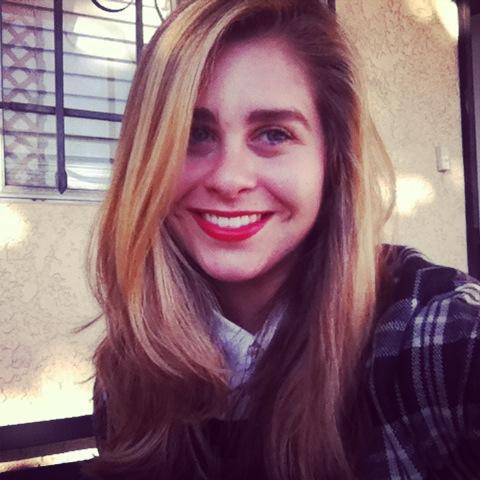Here's the Best Reason for Calling the Charleston Shooting a Terrorist Attack

By:
When a white 21-year-old man who admires the history of apartheid in South Africa allegedly walked into a historic Black church late Wednesday in Charleston, South Carolina, sat down, and killed nine churchgoers, he reawakened a long, painful history of violence against Black churches.
Black churches have been the target of hate crimes throughout U.S. history, dating back to before the Civil War.
In a place where the Confederate flag still flies and Black people drive down a road named after a Confederate officer who tried to preserve the institution of slavery, generations of people have dealt with violent attacks by white supremacists. The Emanuel African Methodist Episcopal Church in Charleston, which was attacked Wednesday, specifically has a long, important role in Black history, from slavery to the Civil Rights Movement to today.
16th Street Church. Birmingham, Alabama - Sept. 15, 1963.
Americans learn in history class about the bombing of the 16th Street Church in Birmingham, Alabama, when Ku Klux Klan terrorists killed four girls on Sept. 15, 1963.
“They died between the sacred walls of the church of God,” Reverend Martin Luther King said. “And they were discussing the eternal meaning of love.”
Mt. Zion Church. Longdale, Mississippi - June 16, 1964
On June 16, 1964, members of the Ku Klux Klan beat people leaving a church meeting in Longdale, Mississippi. They were targeting a civil rights activist named Michael Schwerner. Schwerner was not there, but the historic haven for slaves was burned down by the Klan anyway. Later, Schwerner and two other civil rights workers -- James Earl Chaney and Andrew Goodman -- drove to visit the burned church. On the way, they were pulled over, arrested, and jailed. They were released from jail then beaten and killed. Their story is told in the 1988 movie "Mississippi Burning." The case of the three murdered civil rights workers was one of the key incidents that helped finally drive national attention to the plight of Black people living in the segregated South.
Macedonia Baptist Church and Mount Zion A.M.E. Church. South Carolina - June 21, 1995.
On June 21, 1995, four Ku Klux Klan members burned the Macedonia Baptist Church in South Carolina. The day before, a fire was set at Mount Zion A.M.E. Church in Greeleyville, South Carolina. In a decision against the Klan, Macedonia Baptist was awarded $37.8 million. There were more than 30 suspicious fires at Black churches in 1995 and 1996. This was a time where there was a rise in domestic terrorism, with the most devastating attack happening when anti-government extremists bombed a federal building in Oklahoma City, killing 168 people .
Louisiana church fires - Feb. 1, 1996.
In Louisiana on Feb. 1, 1996, a group of churches within six miles — Cypress Grove Baptist, St. Paul's Free Baptist, Thomas Chapel Benevolent Society in East Baton Rouge, and Sweet Home Baptist in Baker — were each set on fire on the 36th anniversary of the Greensboro, North Carolina sit-in.
Inner City Baptist Church. Knoxville, Tennessee - Jan. 8, 1996.
In Knoxville, Tennessee on Jan. 8, 1996, a fire at Inner City Baptist Church destroyed the sanctuary area. Racial slurs were painted on the walls inside, where Molotov cocktails, kerosene cans, and gunpowder were all found.
Macedonia Church of God in Christ. Springfield, Mass. - Nov. 5, 2008.
Shortly after the election of President Barack Obama in 2008, Macedonia Church of God in Christ, a predominantly Black church in Springfield, Massachusetts, was set on fire on Nov. 5 . The church was under construction at the time. Three white men were charged; two pleaded guilty, and a third was convicted and sentenced to 13 years in prison.
Hate crimes
The FBI identified 3,563 victims of racially motivated hate crimes in 2013, according to the most recent federal data. Here's what the agency found:
- Black victims constituted 66 percent of the total.
- 21 percent were victims of anti-white bias.
- 4.6 percent were victims of anti-Asian bias.
- 4.5 percent were victims of anti-Native American bias.
- Most of these hate crimes were not fatal.
Richard Cohen, president of the Southern Poverty Law Center, released a statement calling the mass killing " an obvious hate crime by someone who feels threatened by our country's changing demographics and the increasing prominence of African Americans in public life." He explains:
Since 2000, we've seen an increase in the number of hate groups in our country — groups that vilify others on the basis of characteristics such as race or ethnicity. Though the numbers have gone down somewhat in the last two years, they are still at historically high levels. The increase has been driven by a backlash to the country's increasing racial diversity, an increase symbolized, for many, by the presence of an African American in the White House.
Since the September 11 Attacks in 2001, the U.S. has mainly focused on threat of Islamic extremists, Cohen said. What happened in Charleston "reminds us that the threat of homegrown domestic terrorism is very real."
The ACLU released a statement on the violence:
